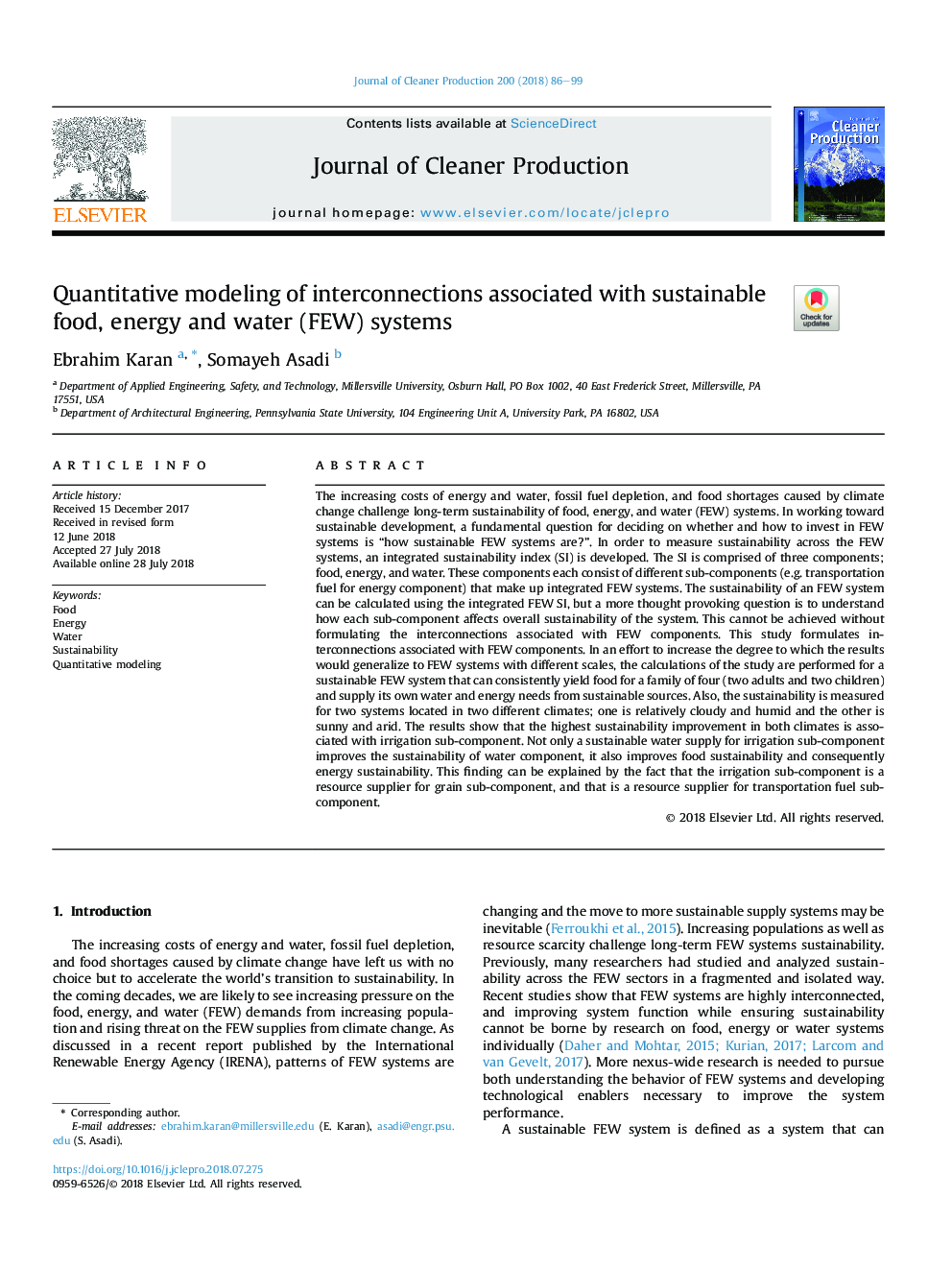| کد مقاله | کد نشریه | سال انتشار | مقاله انگلیسی | نسخه تمام متن |
|---|---|---|---|---|
| 8093011 | 1522052 | 2018 | 14 صفحه PDF | دانلود رایگان |
عنوان انگلیسی مقاله ISI
Quantitative modeling of interconnections associated with sustainable food, energy and water (FEW) systems
دانلود مقاله + سفارش ترجمه
دانلود مقاله ISI انگلیسی
رایگان برای ایرانیان
کلمات کلیدی
موضوعات مرتبط
مهندسی و علوم پایه
مهندسی انرژی
انرژی های تجدید پذیر، توسعه پایدار و محیط زیست
پیش نمایش صفحه اول مقاله

چکیده انگلیسی
The increasing costs of energy and water, fossil fuel depletion, and food shortages caused by climate change challenge long-term sustainability of food, energy, and water (FEW) systems. In working toward sustainable development, a fundamental question for deciding on whether and how to invest in FEW systems is “how sustainable FEW systems are?”. In order to measure sustainability across the FEW systems, an integrated sustainability index (SI) is developed. The SI is comprised of three components; food, energy, and water. These components each consist of different sub-components (e.g. transportation fuel for energy component) that make up integrated FEW systems. The sustainability of an FEW system can be calculated using the integrated FEW SI, but a more thought provoking question is to understand how each sub-component affects overall sustainability of the system. This cannot be achieved without formulating the interconnections associated with FEW components. This study formulates interconnections associated with FEW components. In an effort to increase the degree to which the results would generalize to FEW systems with different scales, the calculations of the study are performed for a sustainable FEW system that can consistently yield food for a family of four (two adults and two children) and supply its own water and energy needs from sustainable sources. Also, the sustainability is measured for two systems located in two different climates; one is relatively cloudy and humid and the other is sunny and arid. The results show that the highest sustainability improvement in both climates is associated with irrigation sub-component. Not only a sustainable water supply for irrigation sub-component improves the sustainability of water component, it also improves food sustainability and consequently energy sustainability. This finding can be explained by the fact that the irrigation sub-component is a resource supplier for grain sub-component, and that is a resource supplier for transportation fuel sub-component.
ناشر
Database: Elsevier - ScienceDirect (ساینس دایرکت)
Journal: Journal of Cleaner Production - Volume 200, 1 November 2018, Pages 86-99
Journal: Journal of Cleaner Production - Volume 200, 1 November 2018, Pages 86-99
نویسندگان
Ebrahim Karan, Somayeh Asadi,